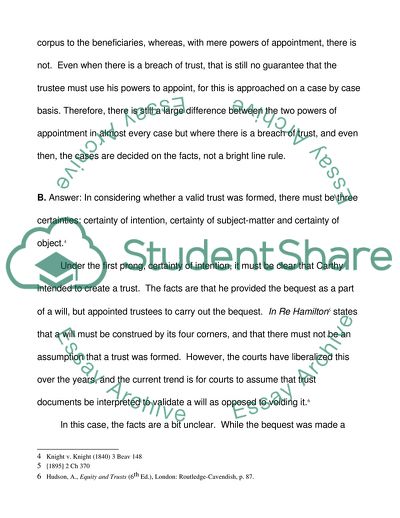Cite this document
(Mere Powers of Appointment and Trust Powers of Appointment Assignment, n.d.)
Mere Powers of Appointment and Trust Powers of Appointment Assignment. Retrieved from https://studentshare.org/law/1740800-equity-and-trust-law-question-1
Mere Powers of Appointment and Trust Powers of Appointment Assignment. Retrieved from https://studentshare.org/law/1740800-equity-and-trust-law-question-1
(Mere Powers of Appointment and Trust Powers of Appointment Assignment)
Mere Powers of Appointment and Trust Powers of Appointment Assignment. https://studentshare.org/law/1740800-equity-and-trust-law-question-1.
Mere Powers of Appointment and Trust Powers of Appointment Assignment. https://studentshare.org/law/1740800-equity-and-trust-law-question-1.
“Mere Powers of Appointment and Trust Powers of Appointment Assignment”. https://studentshare.org/law/1740800-equity-and-trust-law-question-1.


